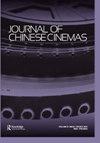Politics of the everyday: Taiwanese-language cinema of the 1950s–1960s
IF 0.4
3区 艺术学
0 FILM, RADIO, TELEVISION
引用次数: 0
Abstract
Abstract This paper addresses the social and cultural values of Taiwanese-language cinema (or Hoklo topolect films, taiyupian) of the 1950s and the 1960s. Although this cinema was composed primarily of commercial films that were produced cheaply to make a quick profit, it clearly struck a chord with local audiences to be able to reign supreme in the domestic film market for over a decade. As the rise of taiyupian coincided with the island’s transition from a rural to urban economy, it can be argued that these films articulated and mediated a Taiwanese experience of approaching modernization—politics of the everyday—at the time. This paper makes use of the recently digitalized taiyupian to analyze the cinema’s representation of, and perceived challenges to, modernity, such as the breakdown of kinship systems, the threat of moral corruption, and the pursuit of materialism. Through plot design and onscreen solutions to family crises, the films reveal the struggle of their makers and their intended audiences to reconcile different sets of conflicting values in a changing society.日常政治:五六十年代的台语电影
摘要本文探讨五、六十年代台语电影的社会文化价值。尽管这家影院主要由廉价制作以快速获利的商业电影组成,但它能够在国内电影市场上统治十多年,显然引起了当地观众的共鸣。由于台湾的崛起恰逢台湾从农村经济向城市经济的转型,可以说,这些电影表达并介导了当时台湾走向现代化的经历——日常政治。本文利用最近数字化的《太平篇》来分析电影对现代性的表现和感知挑战,如亲属制度的崩溃、道德腐败的威胁和对物质主义的追求。通过情节设计和家庭危机的银幕解决方案,这些电影揭示了电影制作人和目标观众在不断变化的社会中为调和不同的价值观冲突而进行的斗争。
本文章由计算机程序翻译,如有差异,请以英文原文为准。
求助全文
约1分钟内获得全文
求助全文

 求助内容:
求助内容: 应助结果提醒方式:
应助结果提醒方式:


